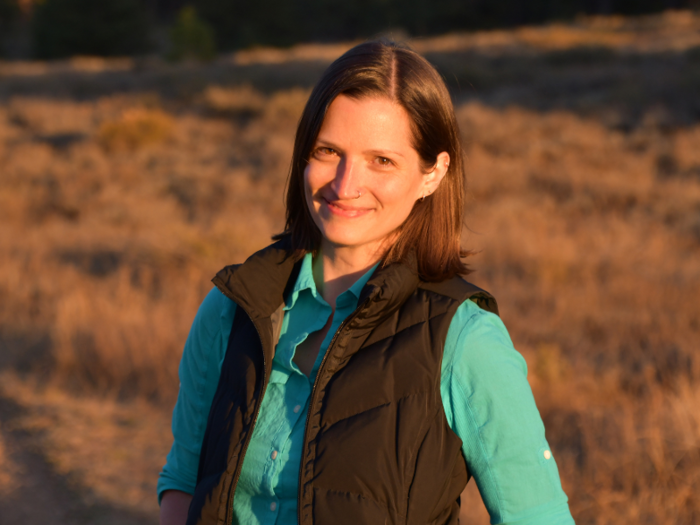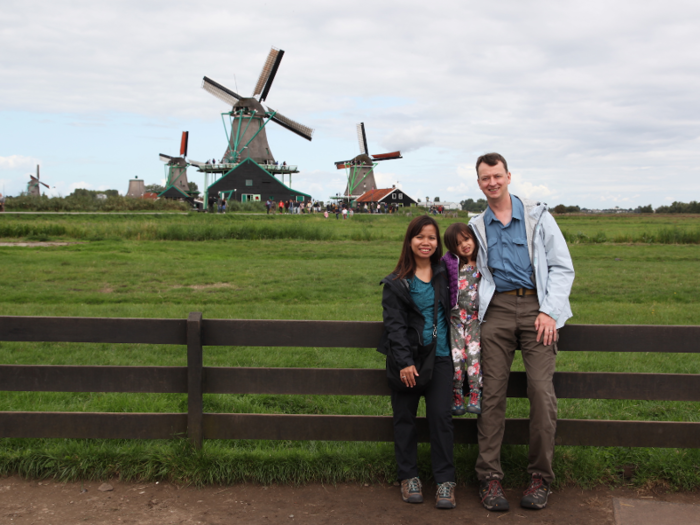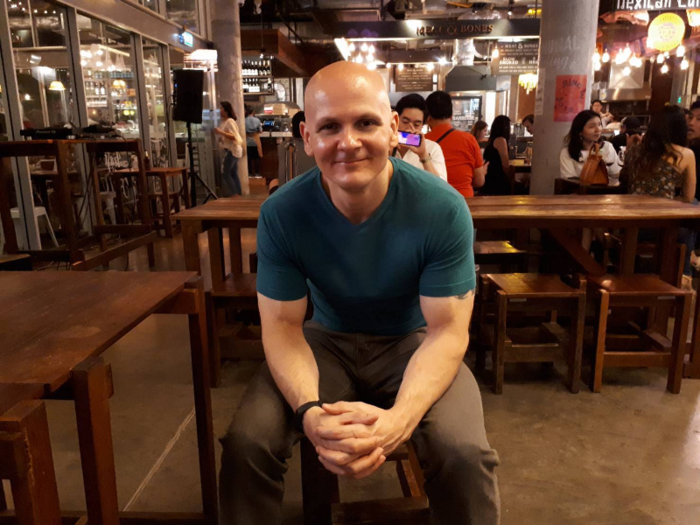- Home
- slideshows
- miscellaneous
- 8 people who retired before age 45 reveal how the decision changed their money habits
8 people who retired before age 45 reveal how the decision changed their money habits
For Kristy Shen and Bryce Leung, financial independence made traveling more affordable.

Jeremy Jacobson and Winnie Tseng don't think about money anymore.

"The most significant way our finances have changed since retiring early is we don't really think about money anymore," Jeremy Jacobson told Business Insider. He and his partner, Winnie Tseng, retired in their 30s and run the blog GoCurryCracker!.
"We have enough passive income for everything we want and need, which is incredibly liberating," he said. "Even without the 'retire early' life, being financially independent provides a tremendous amount of inner peace."
Jacobson's thought is a common theme among early retirees, who often say that early retirement isn't about how wealthy you are. The value of life during early retirement is priceless and doesn't depend on the dollar, they say — it's about time and lifestyle.
Joe Udo cut back on his biggest bill — childcare — by becoming a stay-at-home dad.

Joe Udo of Retire by 40 retired from his engineering career at age 38 when his son was 18 months old. He told Business Insider that retiring early afforded him the ability to become a stay-at-home dad, and he and his wife no longer had to send their son to daycare.
"That was the biggest saving in our monthly budget," Udo said. "We used to pay $1,100 per month for childcare. That was in 2012, so I'm sure it costs a lot more now."
Since retiring early, Udo also spends much less on transportation, clothing, and entertainment — but childcare was their biggest bill, he said.
Sam Dogen gradually learned how to balance risk exposure.

Sam Dogen of Financial Samurai, who retired at age 34 in 2012, said nothing changed for him during the first five years of early retirement.
"For the first year, I was a little worried I made the wrong move leaving behind a six-figure income so young," he said. "But because I negotiated a severance package, my lifestyle didn't change much. The severance package included a lump sum severance check and five years' worth of deferred compensation that paid out every year until 2017."
He recommends that those retiring early try to negotiate a severance instead of simply quitting to create a financial cushion that will ease the transition to early retirement. According to Dogen, you could potentially get a nice severance check, any deferred compensation owed, and eligibility for unemployment benefits for up to 26 weeks.
"Once the severance payments stopped in 2017, I felt even more confident to completely live off investment income since the stock market and real estate market have performed so well since 2009," he said. "But I have dialed back risk exposure to prepare for harder times ahead. The good times never last forever."
Tanja Hester doesn't check her account balances as much.

Tanja Hester and her husband Mark retired when they were 38 and 41, respectively. Hester, blogger at Our Next Life and author of "Work Optional: Retire Early the Non-Penny-Pinching Way," told Business Insider they think about money a lot less than they did while saving.
"When you are saving for a big goal, it's natural to track that progress closely. But since we left work and stopped focusing on saving, it really is amazing how little we check in on our account balances," she said. "We have the things we spend money on, and lots of things we don't, and as long as we don't go crazy, we know that we are in good shape."
She added: "Of course, it helps that we have a very conservative early retirement financial plan that doesn't require major market growth, and so even stock market fluctuations don't bother us because our plan assumes that stuff will happen."
Karsten Jeske reduced expenses by relocating to a lower cost of living area.

Karsten "Big Ern" Jeske of Early Retirement Now retired at age 44. He told Business Insider that after retiring, he and his family moved from San Francisco to Washington state to lower their living expenses and income tax burden.
"Most of the reduction in expenses came from lower housing costs," he said. "We sold our condo in San Francisco and, net of the mortgage and fees, we still had enough money to buy a single-family house in Washington free and clear (no mortgage) and also have a six-figure sum to pad our investments."
He added: "Eliminating the mortgage, lowering property taxes, and cutting some other smaller spending categories, like work lunches and work clothes, we were able to cut our expenses by about 50%."
Jason Fieber took advantage of geographic arbitrage.

For Jason Fieber of Mr. Free at 33, who retired in 2016 at age 33, the biggest change after achieving financial independence and retiring early was psychological.
"I basically stopped worrying so much about money once I knew the expenses were covered," he told Business Insider. "It was like a weight had been lifted off of my shoulders, where I no longer had to kind of obsess over my savings rate, investments, lifestyle, etc. Everything became much easier."
But that might have a lot to do with his move. In 2017, Fieber relocated to Thailand to take advantage of geographic arbitrage (or geo-arbitrage) — earning money in a strong economy (like the US) and spending it in a weaker economy (like Thailand). In addition to making his money (earned in US dollars, spent in Thai baht) stretch further, moving abroad substantially lowered Fieber's cost of living and allows him to "enjoy a wonderful culture."
"Things might be different had I stayed in the US, because the costs are so high there," he said.
Steve Adcock began spending less money on things and more money on experiences.

Steve Adcock of Think Save Retire and his wife retired in their 30s. Since then, they've become full-time travelers and spend less money on material goods and more on experiences, Adcock told Business Insider.
For starters, they travel via their 30-foot Airstream, which has decreased living expenses.
"There are zero commuting costs, which means we have much more control over our fuel consumption as well as expenses," Adcock said. "Though we travel (which requires diesel), we also aren't necessarily driving every single weekday, either."
Since they no longer need work-related items like briefcases or nice clothes for the office, they've decreased their wardrobe budget by 75% and spend $10 to $15 a month on average on clothes-related items, according to Adcock.
"Some months, we spend nothing," he said. "But we are spending on fun things as we travel around the country. For example, we attended the Packers' first football game in Lambeau Field — something we never would have been able to do if we weren't travelers."
"Most early retirees find that they don't spend as much money as they thought after retiring," he continued. "It's because we no longer need things to distract us from full-time work. Once we no longer have those jobs, it's very common for spending to decrease rather than increase."
Popular Right Now
Popular Keywords
Advertisement